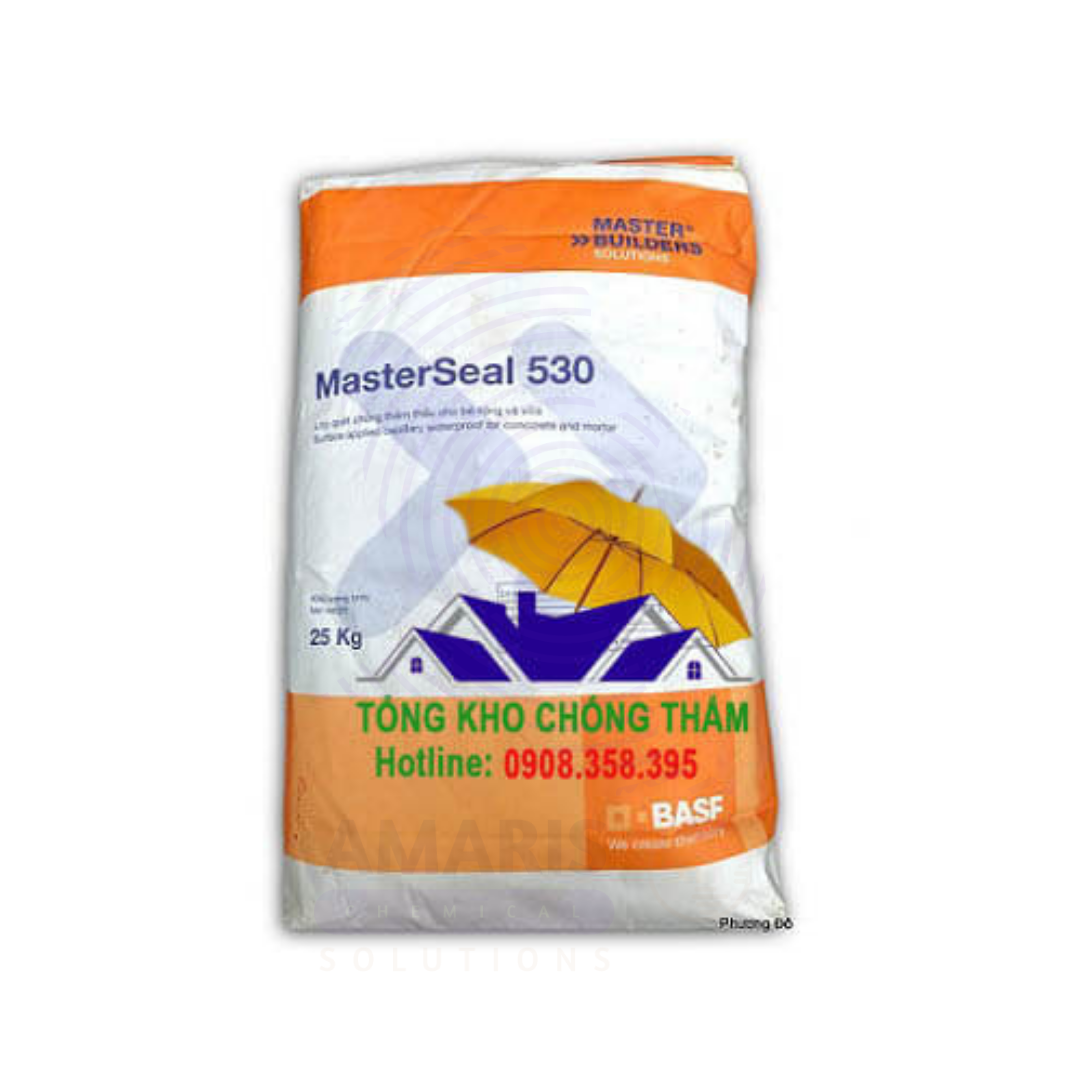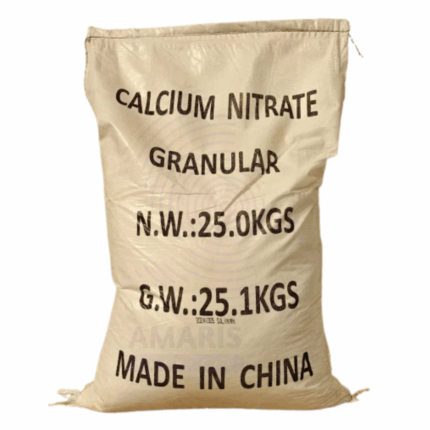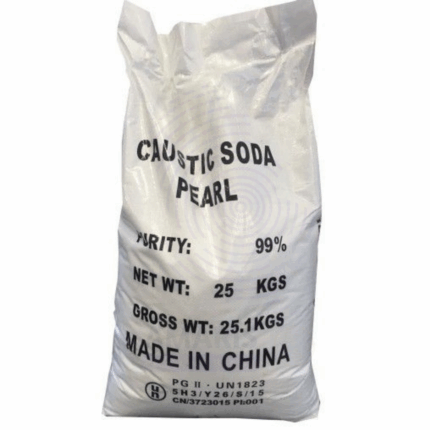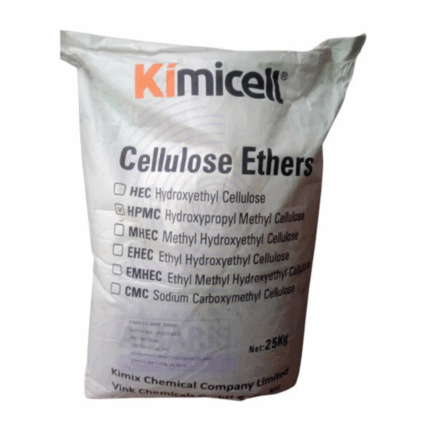“Calcium Chloride Dihydrate” has been added to your cart. View cart

Master Seal 501
$ 2.20 Original price was: $ 2.20.$ 2.14Current price is: $ 2.14.
Master Seal 530
Whatsapp Order
Master Seal 530 is a premium, flexible, cementitious waterproofing slurry designed for protection of concrete and masonry surfaces against water ingress. It offers excellent adhesion, crack bridging, and durability even under severe weather and water exposure conditions. Suitable for use on basements, swimming pools, water tanks, terraces, and retaining walls, Master Seal 530 forms a robust waterproof barrier that resists hydrostatic pressure and prevents moisture damage.
Description
Table of Contents
Toggle
Master Seal 530
Primary Uses
- Waterproofing
- Provides effective waterproofing for concrete, masonry, and plaster surfaces.
- Ideal for basements, water tanks, swimming pools, terraces, and balconies.
- Crack Bridging
- Flexible formulation bridges hairline cracks and accommodates structural movement without cracking or delamination.
- Structural Protection
- Protects reinforcement and structural elements from corrosion caused by moisture penetration.
Secondary Uses
- Concrete Repair Primer
- Acts as a bonding agent and primer in concrete repair works.
- Protective Coating
- Used as a protective layer on facades and exterior walls to reduce water ingress and weathering effects.
PRODUCT KEY FEATURES
- Basic Identification Attributes
- Chemical Name (IUPAC): Polymer-modified cementitious waterproofing slurry
- Common/Trade Name: Master Seal 530
- CAS Number: Not applicable (mixture)
- HS Code: 3824.90.90
- Synonyms: Cementitious waterproofing; flexible waterproofing slurry; polymer cement slurry
- Physical & Chemical Properties
- Physical State: Powder (to be mixed with water)
- Color & Odor: Grey; mild cement odor
- pH (mixed slurry): Approximately 11 – 12
- Solubility: Insoluble in water once cured
- Density: Approx. 1.4 – 1.6 g/cm³ (powder)
- Safety & Hazard Attributes
- GHS Classification: Causes serious eye irritation (Category 2A); may cause skin irritation
- Toxicity: Low toxicity, avoid dust inhalation and skin contact
- Exposure Limits: Follow standard dust exposure limits and industrial hygiene practices
- Storage & Handling Attributes
- Storage Conditions: Store in a dry, cool place, away from moisture
- Container Type: Supplied in bags (commonly 25 kg)
- Shelf Life: 6-12 months if stored properly
- Handling Precautions: Use appropriate PPE including gloves, dust mask, and goggles
- Regulatory & Compliance Attributes
- Complies with construction waterproofing standards and safety regulations
- Free from heavy metals and hazardous substances per industry norms
- Environmental & Health Impact
- Biodegradability: Not biodegradable but inert after curing
- Ecotoxicity: Minimal environmental impact if disposed according to regulations
- Bioaccumulation: Not applicable
- Carcinogenicity/Mutagenicity: Not classified as hazardous
SAFETY HANDLING PRECAUTIONS
- Safety Handling Precautions
- PPE Required: Gloves, dust mask, and eye protection recommended during mixing and application
- Handling Guidelines: Avoid inhaling dust; work in well-ventilated areas
- Storage Measures: Keep bags sealed and dry to prevent moisture absorption
- First Aid Measures
- Inhalation: Move to fresh air; seek medical attention if symptoms develop
- Skin Contact: Wash affected area with soap and water; seek medical advice if irritation persists
- Eye Contact: Rinse eyes thoroughly with water for at least 15 minutes; get medical attention
- Ingestion: Do not induce vomiting; rinse mouth and seek immediate medical help
- Firefighting Measures
- Fire Hazards: Non-flammable
- Extinguishing Media: Water spray, foam, or dry chemical for surrounding fires
- Special Precautions: Use protective gear to avoid inhaling smoke or dust
- Hazardous Combustion Products: None expected during normal fire conditions
Related products
Calcium Chloride
Calcium Chloride is an inorganic salt composed of calcium and chlorine with the chemical formula CaCl₂. It typically appears as a white crystalline solid or granular powder, highly soluble in water and exhibiting strong hygroscopic properties. Calcium Chloride is widely used for its moisture-absorbing ability, de-icing, dust control, and as a firming agent in food processing. It finds extensive applications across industrial, pharmaceutical, agricultural, and food sectors due to its efficacy in modifying physical and chemical properties of products and environments.
Calcium Nitrate
Calcium Nitrate is a highly soluble, white crystalline salt composed of calcium and nitrate ions. It is commonly available as a tetrahydrate (Ca(NO₃)₂·4H₂O). Known for its excellent solubility in water, calcium nitrate is widely used as a fertilizer providing both calcium and nitrogen to plants. It improves soil structure, enhances nutrient uptake, and prevents disorders such as blossom-end rot in fruits. Beyond agriculture, calcium nitrate serves in wastewater treatment, concrete acceleration, and industrial chemical processes.
Caustic Soda Pearls
Caustic Soda Pearls are small, solid, spherical particles of sodium hydroxide (NaOH) produced by a controlled cooling and solidification process. These pearls offer superior flowability, uniform size distribution, and reduced dust generation compared to flake or powder forms. They are highly soluble in water, exhibiting a strong alkaline nature with vigorous exothermic dissolution. Caustic Soda Pearls are widely used across industries including chemical manufacturing, water treatment, pulp and paper processing, and detergents due to their purity, ease of handling, and efficient dissolution characteristics.
Cellulose Ether
Cellulose ether refers to a group of chemically modified cellulose derivatives where hydroxyl groups on the cellulose backbone are substituted with ether groups such as methyl, hydroxyethyl, or carboxymethyl groups. These modifications improve solubility, viscosity, and film-forming properties while maintaining biodegradability and non-toxicity. Cellulose ethers are white to off-white powders or granules that dissolve in water to form viscous, stable solutions. They are widely used as thickeners, binders, stabilizers, and film formers in industries such as construction, pharmaceuticals, cosmetics, food, and paper.
CMC Sodium Blanose
CMC Sodium Blanose is a high-purity, pharmaceutical- and food-grade Sodium Carboxymethyl Cellulose (CMC), manufactured under the Blanose® brand by Ashland or equivalent producers. It is a water-soluble, anionic cellulose ether derived from natural cellulose, designed for superior consistency, clarity, and performance. CMC Blanose serves as a thickening agent, stabilizer, binder, film former, and emulsifier in a wide variety of applications. Known for its excellent rheological control and water retention, it is widely used across the food, pharmaceutical, personal care, and industrial sectors, offering reliable performance with batch-to-batch consistency.
Eagle Styrene Acrylic 72/50
Eagle Styrene Acrylic 72/50 is a co-polymer emulsion consisting of styrene and acrylic monomers, offered at 50% active solids concentration in water. It appears as a milky-white, low-viscosity liquid with a mild odor. This polymer emulsion combines excellent film-forming properties, adhesion, and mechanical strength, making it widely used in coatings, adhesives, sealants, and functional binders across multiple industries.
Master Air
Master Air is a high-performance air release agent used primarily in concrete and construction applications. It facilitates the release of entrapped air bubbles from fresh concrete mixtures, improving workability, surface finish, and durability. This additive enhances the homogeneity of concrete by reducing air voids that can weaken the structure. Master Air is suitable for use in ready-mix concrete, precast elements, and other cementitious materials, contributing to improved mechanical properties and longevity of the final product.
Methyl Cellulose 400mpc
Methyl Cellulose 400 MPC is a chemically modified cellulose derivative in powder form. It is a non-ionic, water-soluble polymer widely used as a thickener, binder, emulsifier, and film former. It exhibits excellent water retention, viscosity control, and thermal gelation properties, making it ideal for applications in construction, pharmaceuticals, food, and cosmetics.


 Preservatives(food)
Preservatives(food) Flavor Enhancers
Flavor Enhancers Acidulants
Acidulants Sweeteners
Sweeteners Antioxidants
Antioxidants Colorants(food)
Colorants(food) Nutraceutical Ingredients (food)
Nutraceutical Ingredients (food) Nutrient Supplements
Nutrient Supplements Emulsifiers
Emulsifiers
 Collectors
Collectors Dust Suppressants
Dust Suppressants Explosives and Blasting Agents
Explosives and Blasting Agents Flocculants and Coagulants
Flocculants and Coagulants Frothers
Frothers Leaching Agents
Leaching Agents pH Modifiers
pH Modifiers Precious Metal Extraction Agents
Precious Metal Extraction Agents
 Antioxidants(plastic)
Antioxidants(plastic) Colorants (Pigments, Dyes)
Colorants (Pigments, Dyes) Fillers and Reinforcements
Fillers and Reinforcements Flame Retardants
Flame Retardants Monomers
Monomers Plasticizers
Plasticizers Polymerization Initiators
Polymerization Initiators Stabilizers (UV, Heat)
Stabilizers (UV, Heat)
 Antifoaming Agents
Antifoaming Agents Chelating Agents
Chelating Agents Coagulants and Flocculants
Coagulants and Flocculants Corrosion Inhibitors
Corrosion Inhibitors Disinfectants and Biocides
Disinfectants and Biocides Oxidizing Agents
Oxidizing Agents pH Adjusters
pH Adjusters Scale Inhibitors( water)
Scale Inhibitors( water)
 Antioxidants(cosmetic)
Antioxidants(cosmetic) Emollients
Emollients Fragrances and Essential Oils
Fragrances and Essential Oils Humectants
Humectants Preservatives
Preservatives Surfactants(cosmetic)
Surfactants(cosmetic) Thickeners
Thickeners UV Filters
UV Filters
 Fertilizers
Fertilizers Soil Conditioners
Soil Conditioners Plant Growth Regulators
Plant Growth Regulators Animal Feed Additives
Animal Feed Additives Biostimulants
Biostimulants Pesticides (Herbicides, Insecticides, Fungicides)
Pesticides (Herbicides, Insecticides, Fungicides)
 Active Pharmaceutical Ingredients (APIs)
Active Pharmaceutical Ingredients (APIs) Excipients
Excipients Solvents(pharmaceutical)
Solvents(pharmaceutical) Antibiotics
Antibiotics Antiseptics and Disinfectants
Antiseptics and Disinfectants Vaccine Adjuvants
Vaccine Adjuvants Nutraceutical Ingredients (pharmaceutical)
Nutraceutical Ingredients (pharmaceutical) Analgesics & Antipyretics
Analgesics & Antipyretics
 Analytical Reagents
Analytical Reagents Solvents(lab)
Solvents(lab) Chromatography Chemicals
Chromatography Chemicals Spectroscopy Reagents
Spectroscopy Reagents microbiology-and-cell-culture-reagents
microbiology-and-cell-culture-reagents Molecular Biology Reagents
Molecular Biology Reagents Biochemical Reagents
Biochemical Reagents Inorganic and Organic Standards
Inorganic and Organic Standards Laboratory Safety Chemicals
Laboratory Safety Chemicals Specialty Laboratory Chemicals(Special Laboratory Equipment)
Specialty Laboratory Chemicals(Special Laboratory Equipment)
 Demulsifiers
Demulsifiers Hydraulic Fracturing Fluids
Hydraulic Fracturing Fluids Scale Inhibitors(oil)
Scale Inhibitors(oil) Surfactants(oil)
Surfactants(oil) Drilling Fluids
Drilling Fluids
 Dyes and Pigments
Dyes and Pigments Bleaching Agents
Bleaching Agents Softening Agents
Softening Agents Finishing Agents
Finishing Agents Antistatic Agents
Antistatic Agents
 Admixtures
Admixtures Waterproofing Agents
Waterproofing Agents Sealants and Adhesives
Sealants and Adhesives Curing Compounds
Curing Compounds Concrete Repair Chemicals
Concrete Repair Chemicals Anti-Corrosion Coatings
Anti-Corrosion Coatings
 Surfactants(cleaning)
Surfactants(cleaning) Builders
Builders Enzymes
Enzymes Solvents (Cleaning)
Solvents (Cleaning) Fragrances
Fragrances
 Electronic Chemicals
Electronic Chemicals Catalysts
Catalysts Lubricants
Lubricants Photographic Chemicals
Photographic Chemicals Refrigerants
Refrigerants Automotive chemicals
Automotive chemicals Pyrotechnic Chemicals
Pyrotechnic Chemicals
 Biodegradable Surfactants
Biodegradable Surfactants Bio-based Solvents
Bio-based Solvents Renewable Polymers
Renewable Polymers Carbon Capture Chemicals
Carbon Capture Chemicals Wastewater Treatment Chemicals
Wastewater Treatment Chemicals
 Pigments
Pigments Solvents(paint)
Solvents(paint) Specialty Coatings
Specialty Coatings Binders/Resins
Binders/Resins Additives
Additives Driers
Driers Anti-Corrosion Agents
Anti-Corrosion Agents Functional Coatings
Functional Coatings Application-Specific Coatings
Application-Specific Coatings
 Fresh Herbs
Fresh Herbs Ground Spices
Ground Spices Whole Spices
Whole Spices Spice Blends
Spice Blends Dried Herbs
Dried Herbs
 Leavening Agents
Leavening Agents Dough Conditioners
Dough Conditioners Flour Treatments
Flour Treatments Fat Replacers
Fat Replacers Decoratives
Decoratives Preservatives(baking)
Preservatives(baking)
 Plasticizers & Softeners
Plasticizers & Softeners Reinforcing Agents
Reinforcing Agents Adhesion Promoters
Adhesion Promoters Vulcanizing Agents
Vulcanizing Agents Antidegradants
Antidegradants Blowing Agents
Blowing Agents Fillers & Extenders
Fillers & Extenders Accelerators & Retarders
Accelerators & Retarders






















